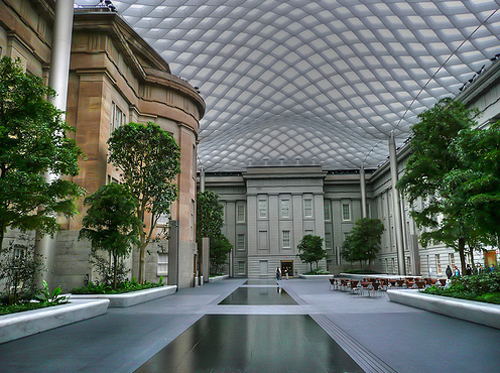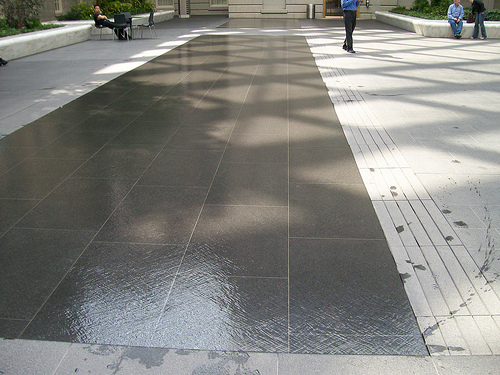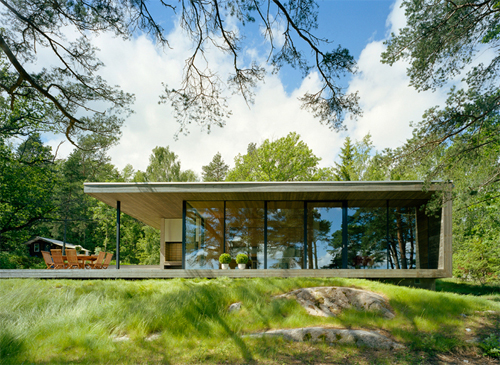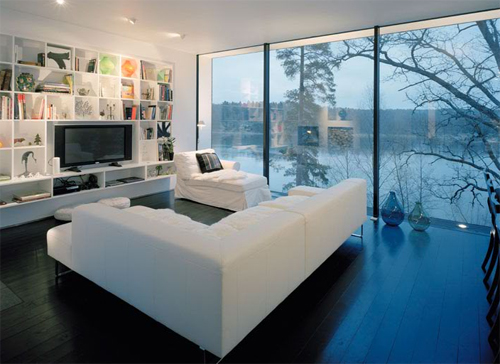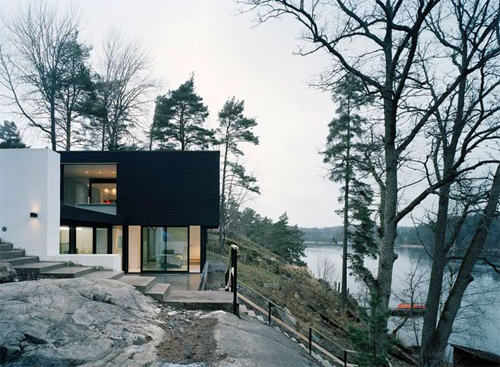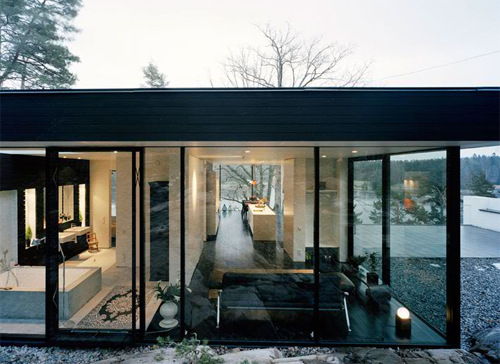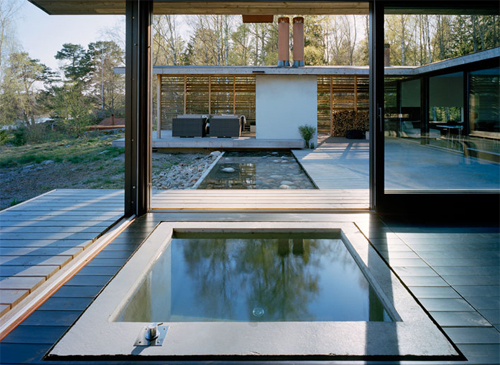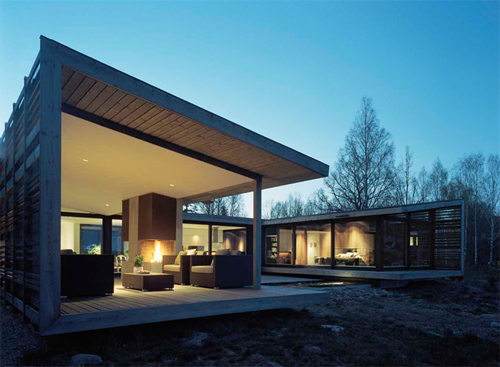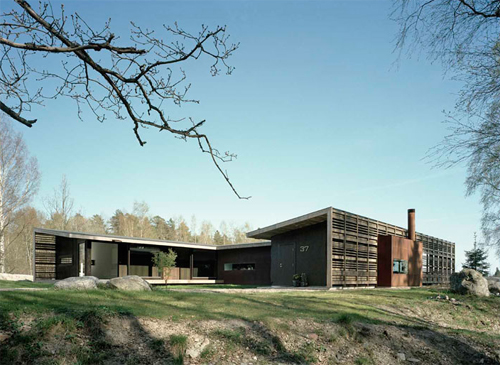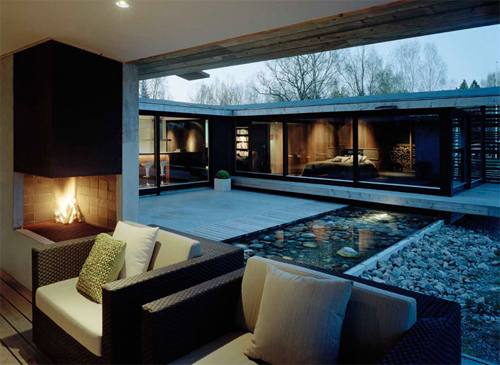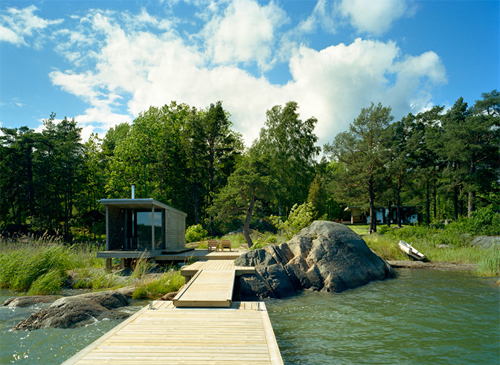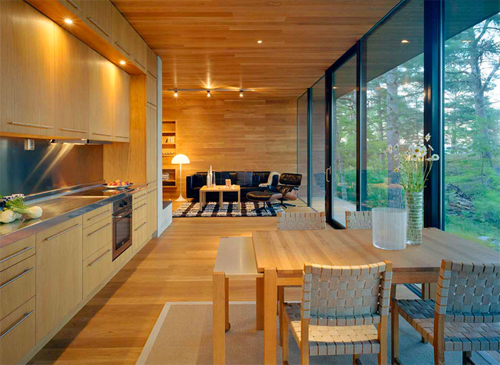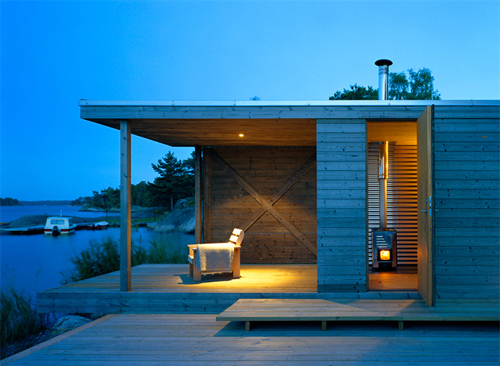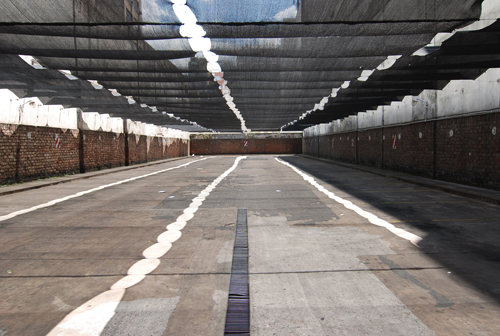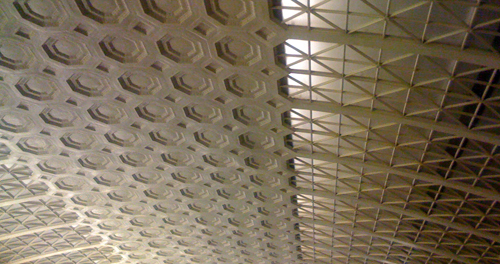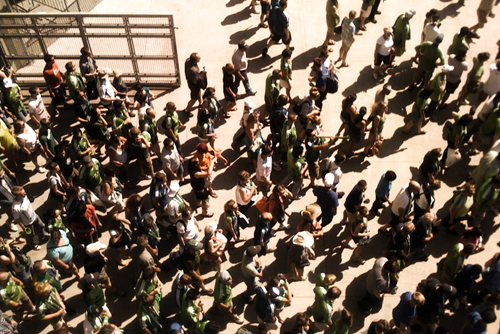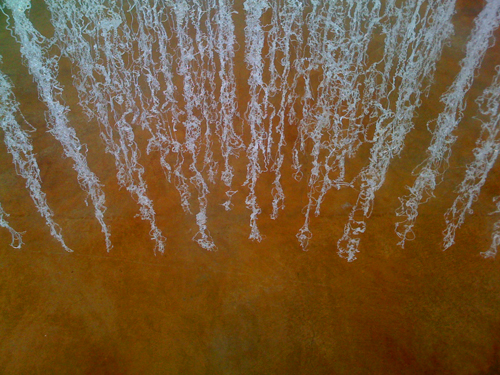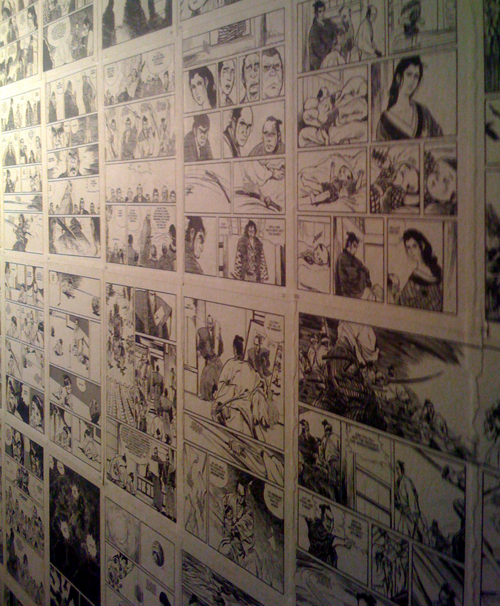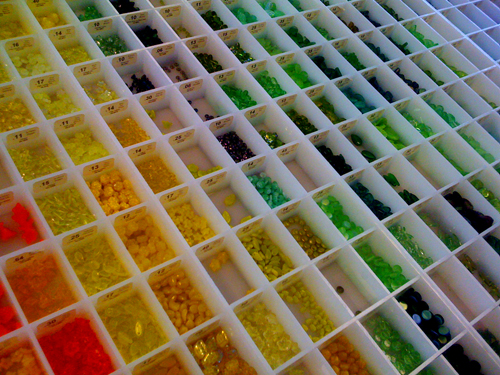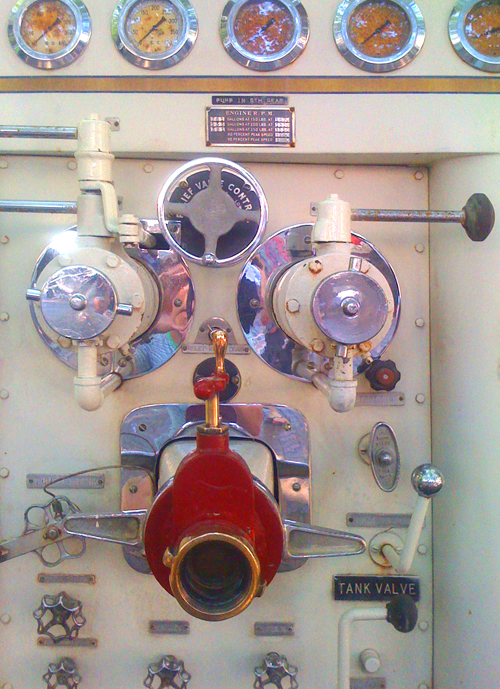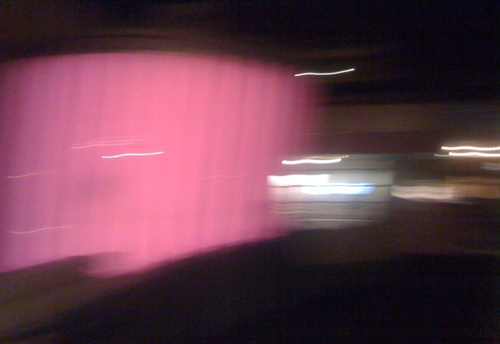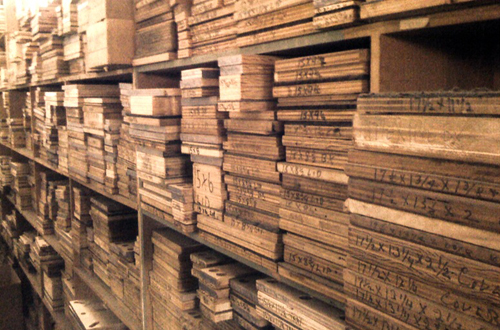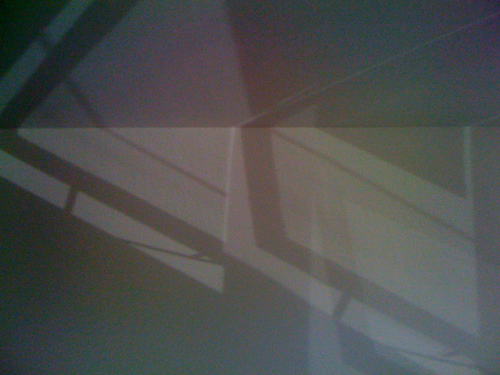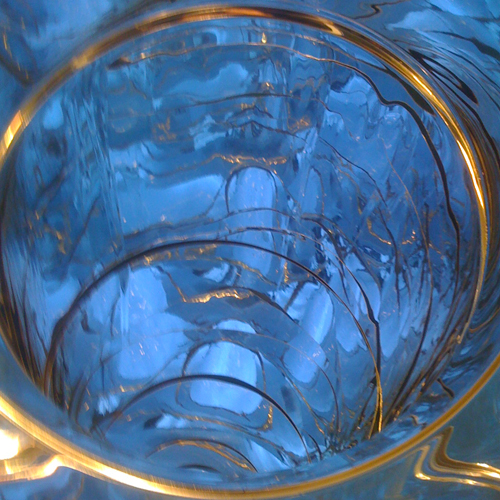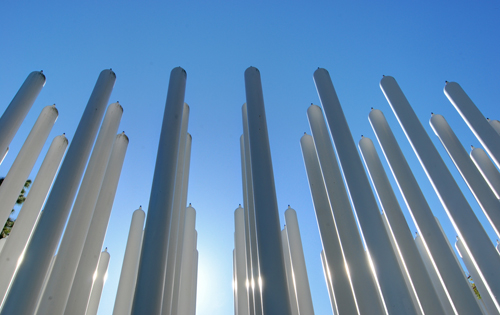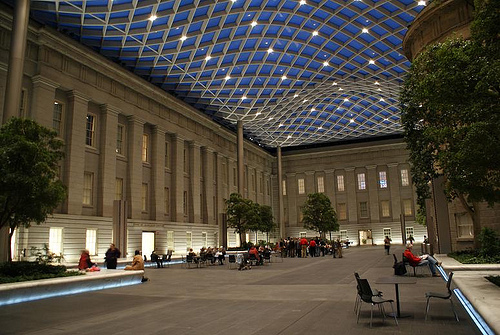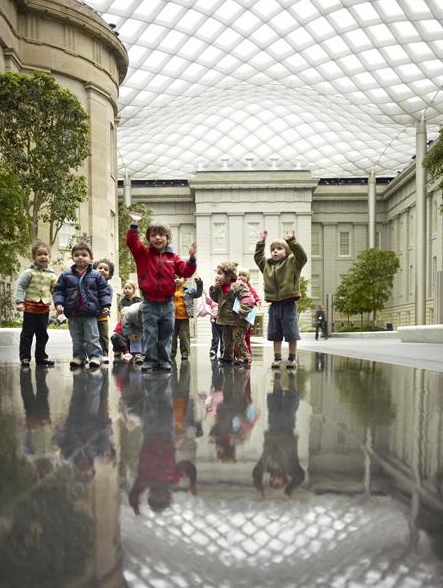Let nature be the ornament
There is a rich variety of colors and textures inherent to materials that are readily available in the Northwest. To us, there is nothing more beautiful than a smooth poured concrete wall, the tight grain of Douglas-Fir and the natural patina of steel all used in accordance with one another. When nature has already done the work, there is very little reason to cover it up.
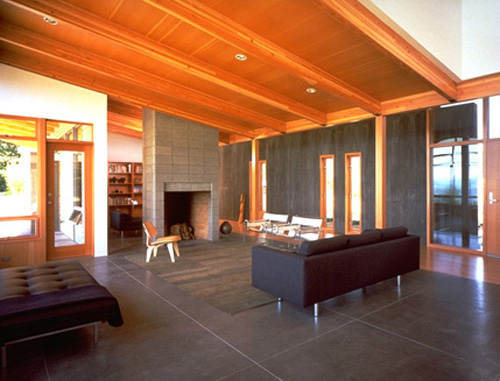
Bruckner Residence near Seattle by
E. Cobb Architects Inc, photo by Paul Warchol
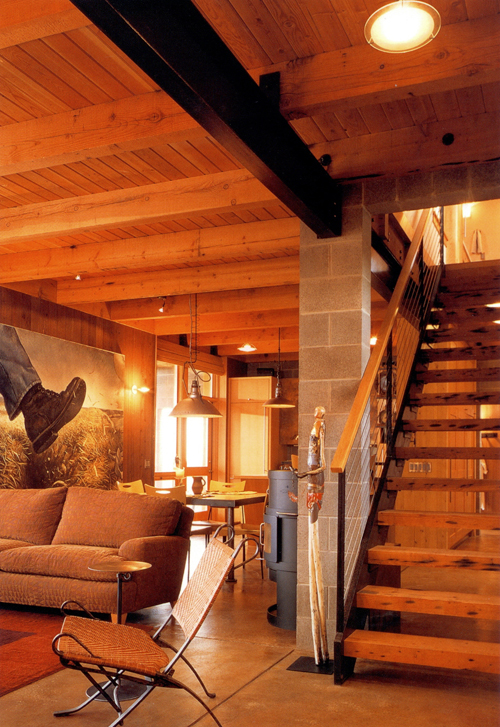
Campbell Orchard Residence in Tieton Washington by
Miller | Hull, photo by James F. Housel
Allow weathering to be beautiful
No matter what the material, it’s going to weather in the Pacific Northwest. Ignoring the effects of weathering leads to projects that look neglected and unintentional. When the weathering is planned for and the process is acknowledged in the architecture, the weathering of a project can add an unparalleled beauty.
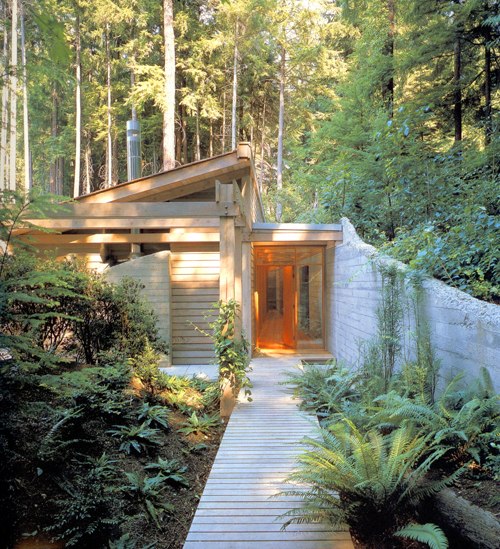
Wright Guest House in the Highlands Washington by
James Cutler, photo by Peter Aaron
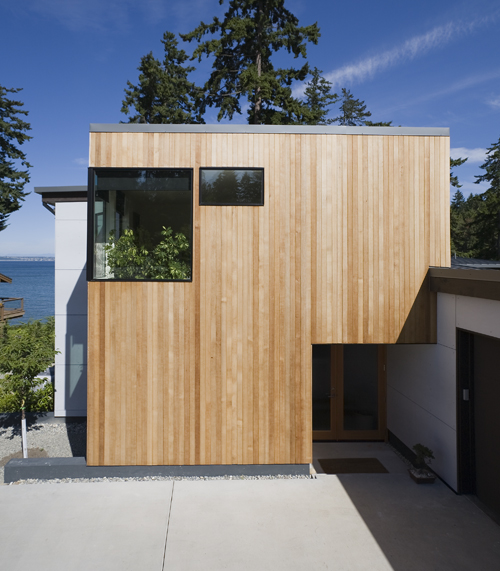
Bainbridge Island Residence by
BUILD LLC, photo by Art Grice
Create deep overhangs
It rains all the time here. There are months in the winter where we’re not sure if it’s ever not raining to some capacity. Respect that and work with it. Long overhangs keep the rain off windows, doors and siding and allow the building to last longer. Overhangs also give a comfortable and warm feeling of shelter when executed correctly.
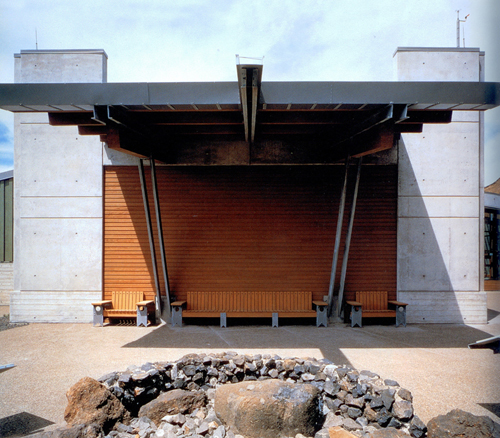
Yaquina Head Interpretive Center in Newport Oregon by
Miller | Hull, photo by Strode Eckert
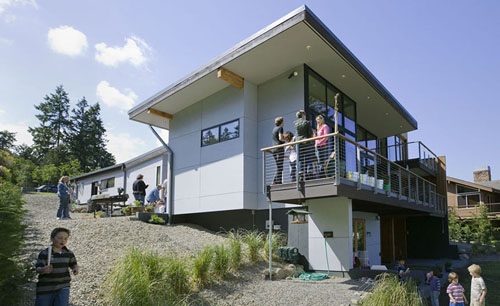
Bainbridge Island Residence by
BUILD LLC, photo by Art Grice
Use subtle colors
Let’s face it – it’s dark and drizzly in the Northwest for about 8 months out of the year. The Scandinavians learned to use subtle yellows and oranges in their architecture to compliment the gray skies. We would be wise to take note and start experimenting a bit with a more colorful palette.
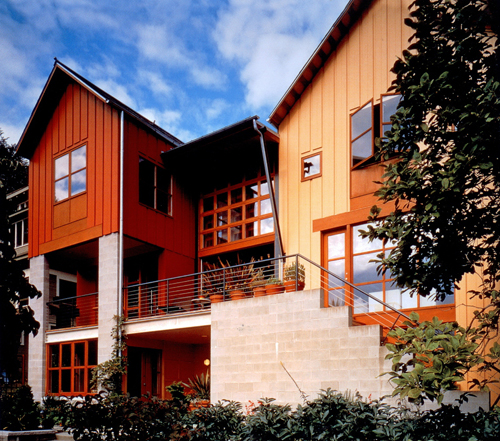
Hansman Residence in Seattle by
Miller | Hull, photo by James F. Housel
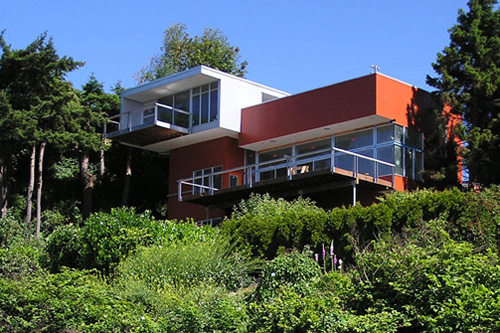
Mile Post 9 near Seattle by
E. Cobb Architects Inc, photo by Chris Eden
Lighting is important
Did we mention that it’s dark for about 8 months out of the year? Artificial light is very important here.
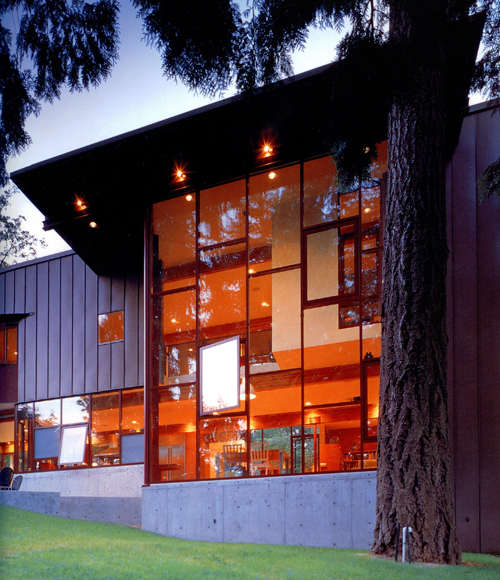
Roddy/Bale Residence in Bellevue Washington by
Miller | Hull, photo by James F. Housel
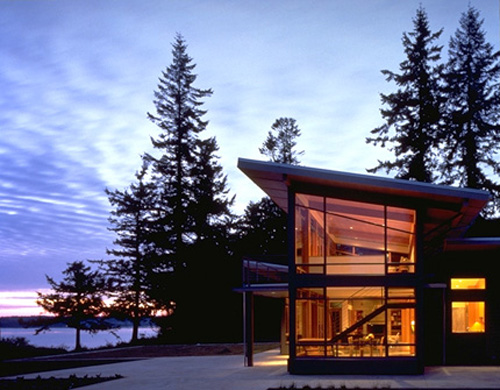
Bruckner Residence near Seattle by
E. Cobb Architects Inc, photo by Paul Warchol
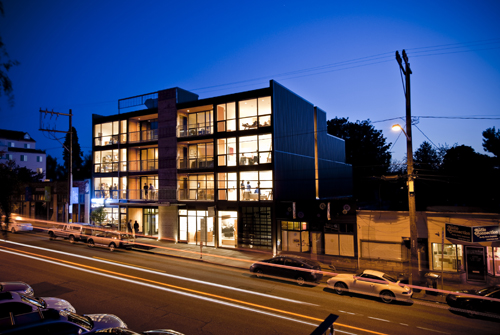
Park Modern in Seattle by
BUILD LLC, photo by
Chase Jarvis
Floor to ceiling glass
Large walls of glass help us gather what light we can. In the best examples the “window” disappears and allows a clear view of the exterior.
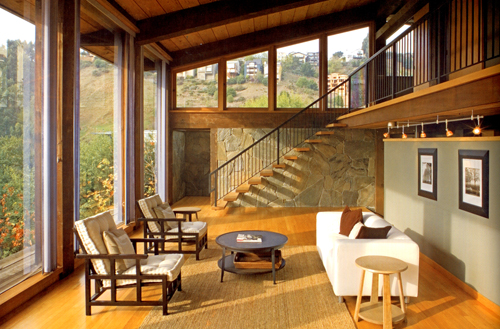
Dr. Poor House near San Francisco by Jack Hillmer, photo by Alan Weintraub
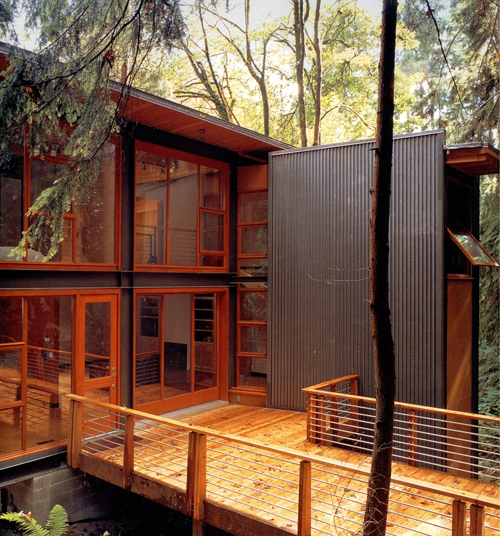
Michaels/Sisson Residence, Mercer Island Washington by
Miller | Hull, photo by Art Grice
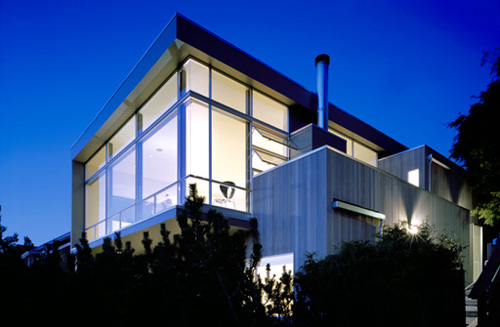
Stretch Residence in Seattle by
E. Cobb Architects Inc, photo by Nick Lehoux
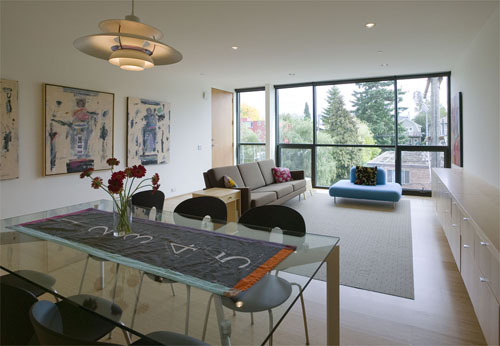
Park Modern by
BUILD LLC, photo by Art Grice
Relationship of inside and outside
During those 3 relatively warm months in the Northwest, we take full advantage of the outdoors. The ability to open up walls and combine the indoors with the outdoors makes for a quantum leap in enjoyment of spaces.
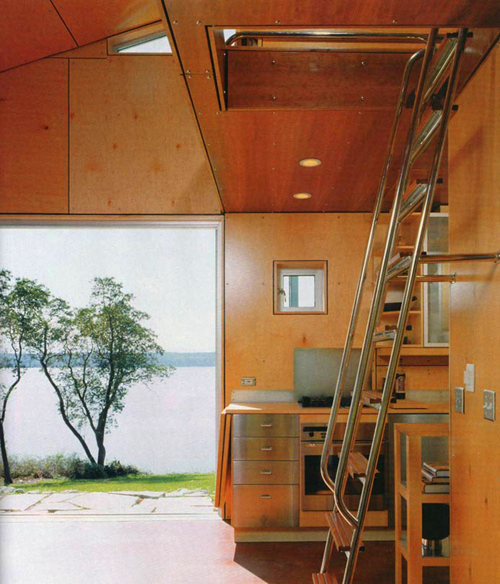
Camano Cabin designed by
Vandeventer and Carlander Architects, Construction management by
BUILD LLC, photo by Steve Keating
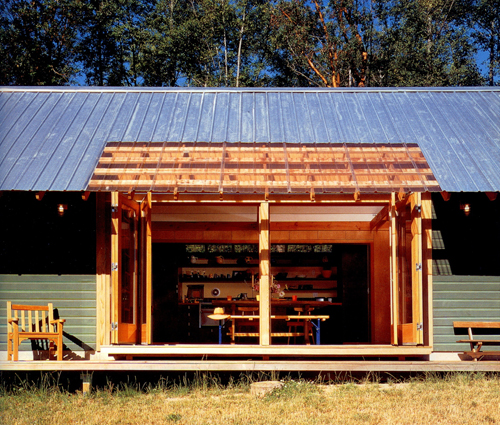
Ching Cabin on Maury Island Washington by
Miller | Hull, photo by James F. Housel
Allow the natural landscape to play a role in the architecture
In the Pacific Northwest, nature is going to work it’s way in, whether you want it to or not – it makes sense to be intentional about it.
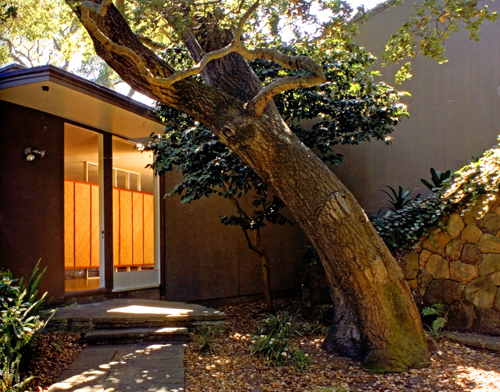
Mayhew House in Orinda California by Clarence Mayhew and Serge Chermayeff, photo by Alan Weintraub
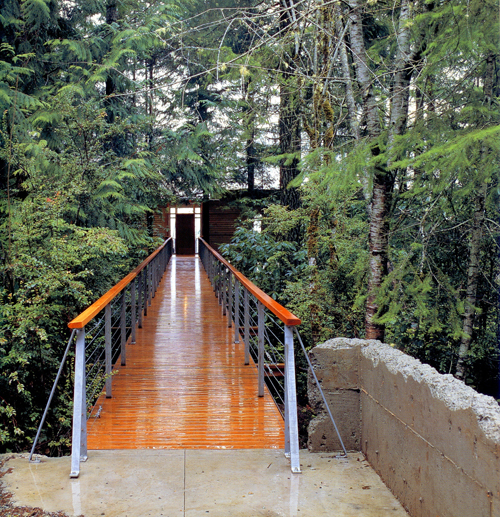
Paulk Residence in Seabeck Washington by
James Cutler, photo by Art Grice
Let nature regulate shade and sun
When a trellis is cleverly situated it provides shade in the summer and sunlight in the winter.
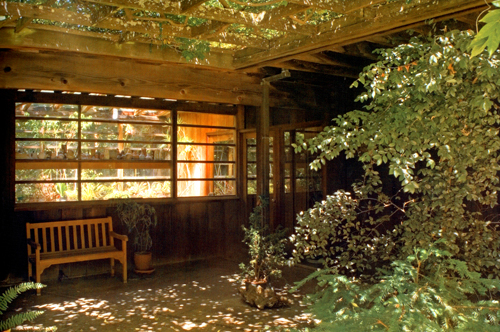
Wayne and Joan Miller house in Orinda California by Mario Corbett
Use materials and trades from the area
With nearby lumber mills in the Cascades, an entire shipping industry in Ballard and a healthy manufacturing industry in South Seattle there is very little reason to go outside of the region for resources.
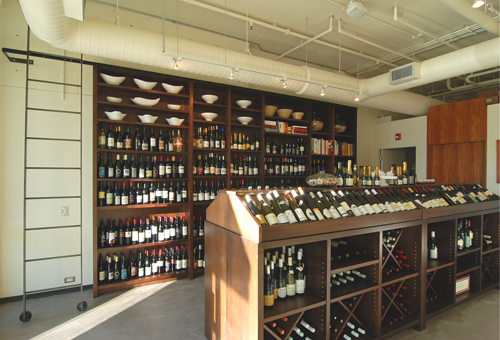
Picnic by
BUILD LLC, photo by
BUILD LLC
Build with methods and materials from our current time
Unless you’re drawing from Native American smoke houses – the northwest doesn’t have a substantial architectural history to derive from. Creating references to traditional architectures from the Midwest prairies, the East-coast or Europe is inauthentic. We have the rare opportunity in the northwest to create our own architectural path and there is no reason to ignore the innovations and knowledge of our current time.
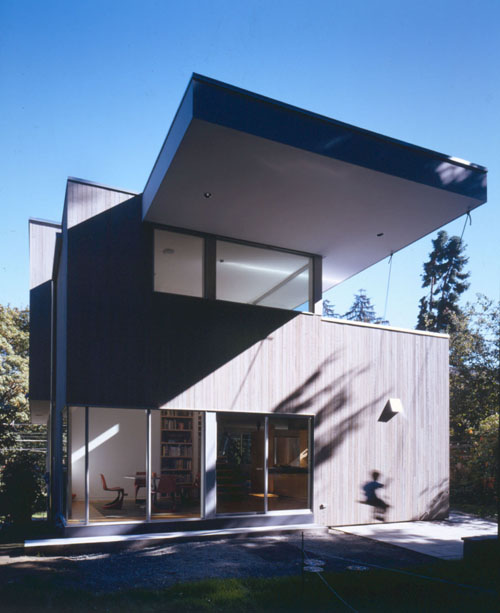
Lagerberg House in Seattle by
E. Cobb Architects Inc, photo by Steve Keating
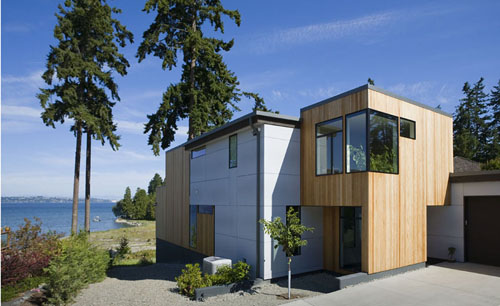
Bainbridge Island Residence by
BUILD LLC, photo by Art Grice
Design for flexibility
As a young city, our society is still evolving. Neighborhoods that were industrial 10 years ago are now some of the most enjoyable places to live. While we can’t predict what will become of architectures we can refrain from over personalizing them.
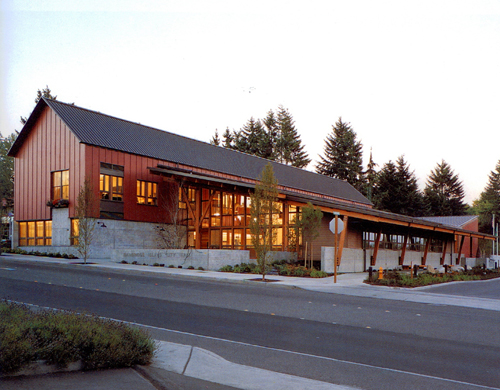
Bainbridge Island City Hall by
Miller | Hull, photo by Art Grice
Modesty
Architecture is rarely the main attraction here in the Pacific Northwest. With the Olympic Mountain Range, the Cascade Mountain Range, the Puget Sound, the San Juan Islands, rainforests, coast line, and more evergreens than you can swing a chainsaw at, the architecture is typically the means to admire other phenomenon. More often than not, the architecture shouldn’t get in the way.
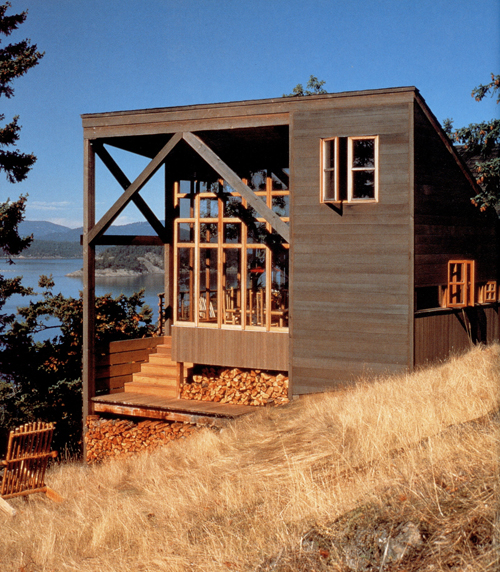
Gorton/Bounds Cabin on Decatur Island Washington by
Miller | Hull, photo by Chris Eden

Kogan Residence in Seattle by
E. Cobb Architects Inc, photo by Steve Keating
Honesty
We’re a pretty straight-forward people here in the Pacific Northwest– things should look like what they are. Covering up how a structure works to produce an academic or theoretical statement doesn’t carry much weight here. Houses and building should look like what they’re doing.
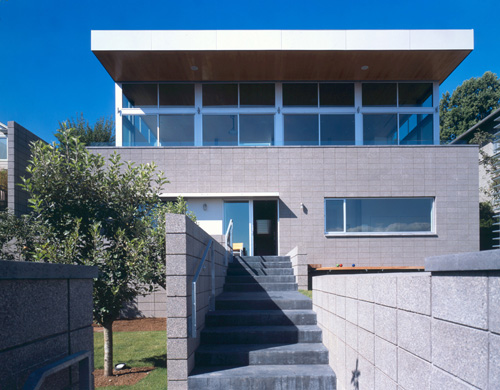
Tobias Residence in Seattle by
E. Cobb Architects Inc, photo by Paul Warchol
Via
Miller | Hull, Architects of the Pacific Northwest by Sheri Olsen
Forgotten Modern, California Houses 1940-1970 by Alan Hess & Alan Weintraub
James Cutler, Contemporary World Architects, Rockport Publishers
E. Cobb Architects Inc. Website
BUILD LLC website





























